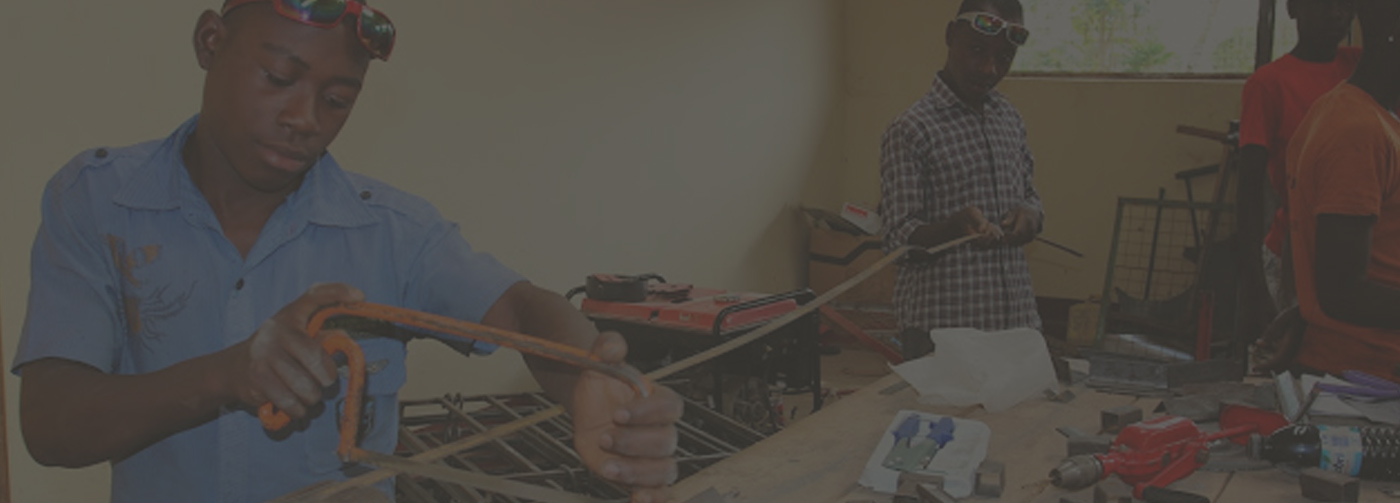Vocational training
Alongside academic education, A Chance for Children focuses on solid vocational training. Adolescents are able to learn practical skills at school and in the holidays; this education enables them to be self-sufficient, not dependent on handouts.
-
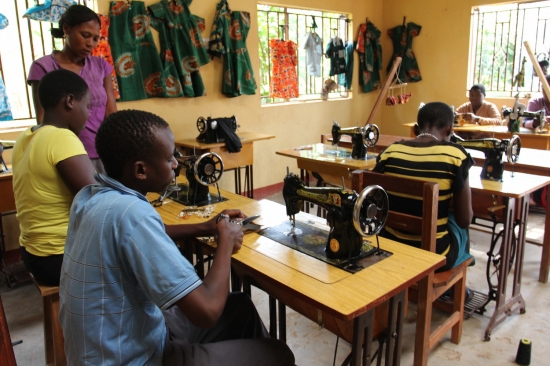 Schneiderei
Schneiderei
-
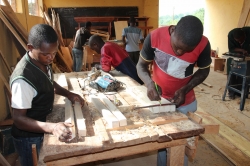 Tischlerei
Tischlerei
-
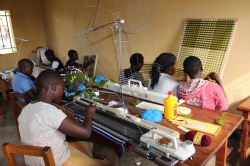 Strickworkshop
Strickworkshop
-
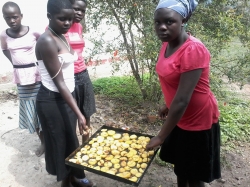 Catering
Catering
-
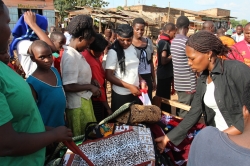 Verkauf der Waren im Zentrum von Zigoti am Ende der Workshops
Verkauf der Waren im Zentrum von Zigoti am Ende der Workshops
The organisation operates three joineries (Zigoti, Bongole and Nateete) and two tailor's workshops (Zigoti and Nateete). Here, students make their own school uniform, desks and chairs. In addition they receive tuition in various handicrafts and are encouraged to learn different skills such as welding, shoe repair, knitting, cooking and hairdressing. In their senior years they specialise and deepen their knowledge of one skill.
-
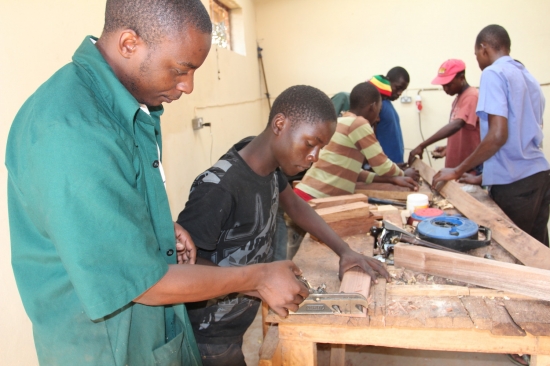 Meister Alex unterrichtet in der Tischlerei
Meister Alex unterrichtet in der Tischlerei
-
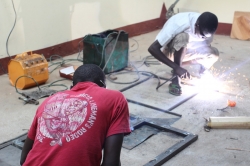 Im Schweißworkshop
Im Schweißworkshop
-
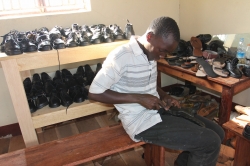 Schusterei
Schusterei
-
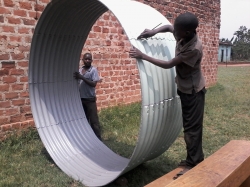 Workshop "Wassertank Bauen"
Workshop "Wassertank Bauen"
-
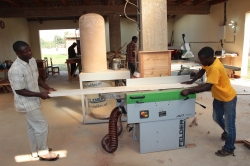 Auch Holzbearbeitungsmaschinen von FELDER kommen zum Einsatz
Auch Holzbearbeitungsmaschinen von FELDER kommen zum Einsatz
-
Opportunities through apprenticeship
+A few young people are taken on as apprentices in our joinery or tailoring workshops, having had to leave school early. For instance Maria had a baby when she was 15, in Primary 5, and is now studying tailoring.
Clement, Ben and John have learning difficulties and could not progress beyond Primary 6, but they are enjoying joinery studies with their teacher, Master Alex.
Another adolescent, Tom, was our first joinery trainee and finished his apprenticeship in 2015. He was presented with essential tools and planks of wood as a farewell gift, to give him a good start in his working life.
Florence, our first trainee seamstress, produces school uniforms in Nateete.
Agricultural education
In Bongole, Nateete, Nakaziba, Lubajja and Zigoti, our organisation owns about 74 hectares of agricultural land, used for farming basic crops (corn, beans, sweet potato, cassava and tomatoes) and for reforestation. Cows, pigs, goats, chickens and rabbits are cared for by senior students. Almost 80% of Uganda's population rely on farming, even if they have other jobs, so it is important that our children learn farming skills.
-
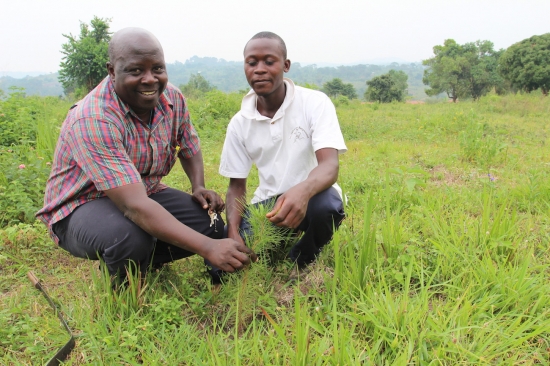 Herman und Juma mit Setzlingen in Bongole
Herman und Juma mit Setzlingen in Bongole
-
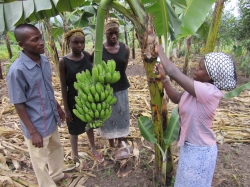 Ausbildung auf der Farm
Ausbildung auf der Farm
-
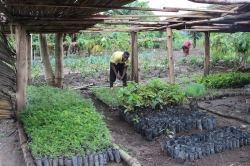 Pflege der Setzlinge
Pflege der Setzlinge
-
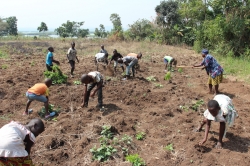 Im Ferienlager lernen die Kinder spielerisch die Landwirtschaft kennen
Im Ferienlager lernen die Kinder spielerisch die Landwirtschaft kennen
-
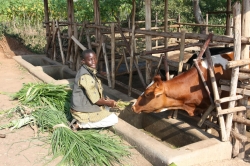 Kühe füttern auf der Farm in Zigoti
Kühe füttern auf der Farm in Zigoti

